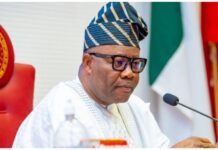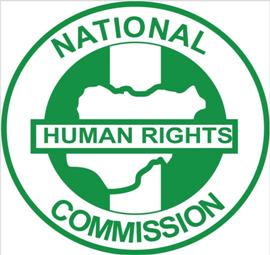A consortium of Civil Society Organisations (CSOs) has asked the Central Bank of Nigeria (CBN) to ensure level playing ground for all oil marketers in accessing Foreign Exchange (FOREX) for importation of petroleum products.
The group disclosed this in a communique relased after its meeting in Abuja, on Tuesday.
The News Agency of Nigeria (NAN) recalls that the consortium formed in April 2020, spearheaded by the Nigeria Natural Resource Charter (NNRC) comprises Civil Society Legislative Advocacy Centre (CISLAC), BudgIT and Connected Development (CODE).
Others are Media Initiative for Transparency in Extractive Industries (MITEI), OrderPaper Advocacy Initiative, Women in Extractives (WiE), Dataphyte, Spaces for Change, Extractive 360, Centre for the Study of the Economies of Africa (CSEA) and Youth Forum on Extractive Industry Transparency Initiative (Youth Forum on EITI).
Also, Publish What You Pay (PWYP), Africa Network for Environment and Economic Justice (ANEEJ), African Centre for Leadership Strategy and Development (CentreLSD), Centre for Development Support Initiatives (CEDSI), Centre for Transparency Advocacy (CTA) and Koyenum Immalah Foundation.
It said that CBN must ensure that all marketers importing Premium Motor Spirit (PMS) also known as petrol must be treated the same way as the Nigerian National Petroleum Corporation (NNPC).
“The relevant authorities, especially the CBN should ensure a level-playing field for all importers of PMS and not place the NNPC at an advantage over others, ” it said.
It also called on the NNPC to take urgent practical steps to reverse the fortunes of the loss making refineries as revealed in its published 2018 Audited Reports of its subsidiaries.
“The refineries remain cost centres that the Nigerian government cannot afford given the impact of COVIV-19 and other fiscal pressures on its economy.
“The Nigerian government should create an enabling environment for the private sector to contribute to the efficient running of the refineries so that Nigerian can reach its domestic refining goals,” it said.
The group further called on the President and the Minister of Petroleum Resources to demonstrate honest commitment to the deregulation efforts by expunging the laws that entrench the potential of returning to a subsidy regime and pre-deregulation state.
It said that government should repeal the law establishing the Petroleum Products Pricing Regulatory Agency (PPPRA) and other agencies to ensure full deregulation of the downstream oil sector.
“The government repeal the PPPRA Act, the PEF(M)B Act and the Price Control Act specifically, section 6(1) of the Petroleum Act, Schedule 1 of the Price Control Act, all acts that ensure a potential of returning to a price fixing regime and demonstrate to the Nigerian people that the declaration of full deregulation’ is merely a statement of intent and not yet honored.
“There is need for the Federal Government to commit to the sustainability of the deregulation regime by entreating it in law either through a stand-alone legislation, or through appropriate clauses integrated into the Petroleum Industry Bill (PIB) will allow for the sustainability of the no-subsidy regime.
“While we await appropriate legislation, we require the government to clarify the role of the Petroleum Support Fund in the new deregulation regime. Clarity is required about how that fund is being managed, whether the over-recovery sums were deposited there and how they are epected to be spent,” it said.
It also urged the Ministry of Petroleum Resources to “back up its deregulation policy statement by empowering appropriate agencies including the Federal Competition and Consumer Council to take over the consumer protection interests of Nigerians.
It said this might be adversely taken advantage of in a deregulated downstream sector to protect the interests of the people would not suffer exploitation in the hands of profiteering marketers.
On the issue of ameliorating the immediate effects of the removal of petrol subsidy, the group said government should channel the revenues used for subsidy to improve the lives of Nigerians and not the rich.
It noted that this could be achieved by investing in enablers of economic growth and development such as development of rural roads, education, health services and agriculture.
According to the group, if the NNPC must remain a player in the market, it must strive to operate under the same conditions and rules as other players in the sector regulated only by the prevailing market forces and competition.
It commended government for providing initial regulation to support the deregulation efforts in June 2020.
“We encourage the government to ramp up its engagements with the public to improve their awareness and understanding of the deregulation process and all it portends for the Nigerian people.(NAN)




